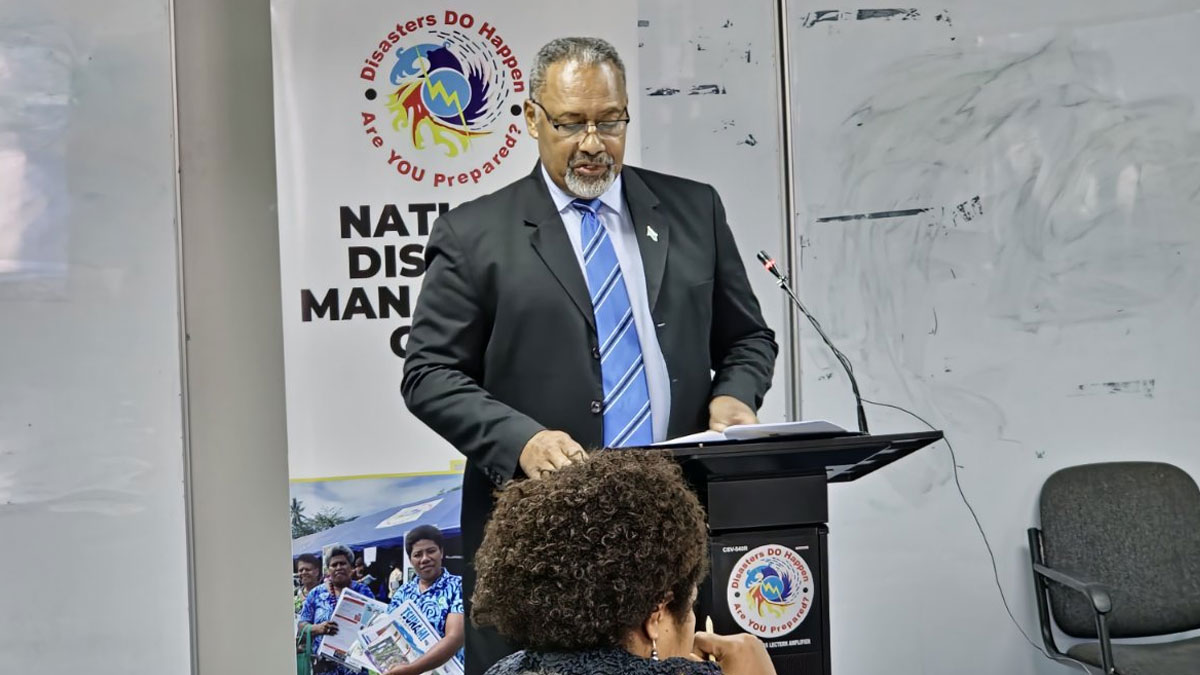
New flood early warning systems have been tested in the Ba Province.
Minister for Disaster Management, Sakiasi Ditoka says thanks to a funding support of $1 million from the National Disaster Management Research Institute (NDMI) of Korea, the NDMO was officially handed over the “Construction of Forecasting and Warning System for Disaster Risk Reduction in Fiji” Project which saw the installation of flood early warning systems, encompassing 4 rainfall stations, 7 water level stations, and 6 warning posts in vulnerable communities located within the Ba Province catchment area.
He says one significant challenge faced in the past was the absence of a flood early warning system at the community level.
Ditoka says this often led to people being stranded in their homes during flooding events or taking risks to reach safe areas.
He says the lack of such a system puts the lives of first responders at risk, particularly during evacuation or search and rescue operations.
The Minister says this newly installed flood early warning systems will address this challenge by providing the community with its own early warning system.
He adds they also plan to extend this project to other divisions, especially those residing in flood-prone areas.
Meanwhile the United Nations Office for the Coordination of Humanitarian Affairs has confirmed a pre-arranged funding from the Central Emergency Response Fund (CERF) of upto US$2 million if specific pre-agreed triggers for unusual tropical cyclones occur in Fiji.
Ditoka says Fiji is the first country in the region to initiate a pilot program for anticipatory action in collaboration with the UN.
Ditoka says this program is designed to prevent and mitigate the immediate impact of forecasted unusual tropical cyclones in Fiji.
He says the primary goal of this project is to assess the feasibility of anticipatory action in Fiji and work towards establishing it as a regular operational approach in the country.
The Minister says the Fiji Cluster System has made significant efforts to put this support mechanism in place.
He says the anticipatory action framework was developed and approved during the National Disaster Management Council meeting in August.
Stay tuned for the latest news on our radio stations

